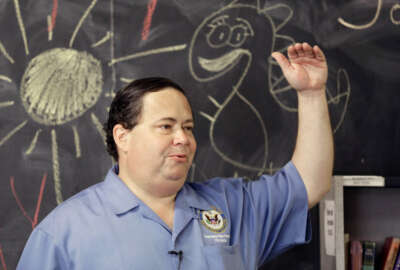
Federal pay party? Make it a BYO affair
Planning a federal pay raise party? If so, Senior Correspondent Mike Causey says you may want to hold down expenses by making it a BYO affair.
Feds planning a 2016 pay raise party can be forgiven if they ask colleagues to bring their own food and drink when they come to the gala.
Why?
Well, it’s Pennies From Heaven time again in federal offices around the world. And there is good news and not so good news.
The happy-days- are-here again part is that for most white-collar federal workers, the new 2016 pay raise will start appearing in their checks later this month.
The new salary cap for long-time, high-grade workers in a number of cities will be $160,300. That is up from $158,700 in 2015.
The not-all-that-great news is that what appears won’t be much. For most workers, the raise, after slicing and dicing for locality pay adjustment, won’t be much. So how small is it?
Your 2016 pay raise is so small that some might not notice it, unless they look carefully. And with health insurance premiums going up faster than pay, more people are treading financial water.
Check out the new pay scene in the Washington-Baltimore area, also known as the DMV.
The DMV (the District of Columbia, much of Maryland and Northern Virginia) has the highest concentration of federal workers in one area, although California has the most feds. It is also one of the highest paying (but not the top) locality pay areas in the nation.
When the 2016 raise kicks in for a GS 7, step 5 in the DMV, folks in that grade and step will see their annual salary advance from $48,796 (the 2015 rate) to $49,509. That will move the hourly rate of pay for that grade and step to $23.72, from $23.38. Better than a hot poker rammed, well, just about anywhere. But not much.
For feds at the GS 14 level in metro Washington pay will go from its 2015 range of $107,325 to $139,523, to a minimum and maximum salary range of $108,887 to $141,555.
The pay range for a GS 13 in Houston-Baytown, Huntsville, Texas, this year will be $96,343 to $123,951, up from a range of $$94,106 to $122,336 last year.
Pay Comparison: You vs. Them/Then vs. Now
- To checkout the new, 2016 pay rates on a city-by-city basis, click here.
- To see the federal pay table, city-by-city for 2015, click here.
Nearly Useless Factoid
Of all the states, West Virginia has the longest DMV wait times — just over an hour.
Source: DMV.com
Copyright © 2025 Federal News Network. All rights reserved. This website is not intended for users located within the European Economic Area.
Mike Causey is senior correspondent for Federal News Network and writes his daily Federal Report column on federal employees’ pay, benefits and retirement.
Follow @mcauseyWFED





